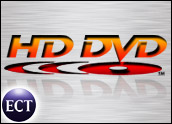
Microsoft and Intel yesterday lined up behind Toshiba and its next-generation DVD technology, called HD DVD, in a move that seems significant because of the combined influence of the two industry giants, but which in fact, one analyst said, will likely have a negligible effect.
“The announcement will appear to be more than it is,” Josh Martin, research analyst at IDC, told TechNewsWorld. “It’s obviously a factor, but Hewlett-Packard and Dell will continue to support Blu-ray [Sony’s rival next-generation format] on their machines.”
“It swings the pendulum back to HD DVD, but studios will make it work either way,” because the market is about the content, not the format, he said.
Microsoft’s Reasoning
Microsoft cited several factors in its decision, including ease of manufacturing, managed copying features and discs with higher storage capacity. With managed copying, consumers would be able to buy content once and access it through different mediums in their homes. The idea is to discourage piracy by making legal copying easy and erecting barriers to illegal copying within the same system.
While Toshiba has said it will incorporate the Advanced Access Content System (AACS), Sony is also a founder of the industry group that developed AACS. Martin said he believes that Sony will at some point use AACS in Blu-ray.
The real advantage for Microsoft may be that HD DVD will distinguish its Xbox 360, due out Nov. 22, from Sony’s upcoming PS3, which will contain Blu-ray technology. Microsoft wants its gaming console to be seen as a conduit for sharing content from various home media. For instance, a consumer could copy a movie from a PC to the Xbox 360 and watch it on a TV.
More Expensive Discs
The software giant also cited Toshiba’s hybrid disc, which stores both high-definition and standard-definition versions of content, but Martin questioned whether that was wise. The DVD market is already softening, he said, and consumers may be unlikely to buy a more expensive disc that has a format on it that they cannot use.
“The elasticity of the DVD market is not huge,” he said. “Once you go above that US$15, people get more reluctant to buy.” The hybrid disc costs more to manufacture, so either the consumer price will rise or manufacturers will have to swallow the cost difference.
While there seem to be some advantages to Microsoft in the endorsement, chipmaker Intel’s motives for backing HD DVD are elusive.
“What’s in it for Intel? I don’t know,” Martin said. “Their chip works with any system, so it remains to be seen.”






















































This is NOT new news. Microsoft MONTHS ago signed a partnership agreement with Toshiba over HD-DVD.
Microsoft and Intel do not like the idea of such a HUGE volume of data storage medium being available to the gerneral public …YET! They would rather bring that AM ount of storage to the masses over years. Then manufacturers could go through more generations of having to get people to replace all their hardware.
This is REALLY about maximizing the number product and technology life cycles consumers will have to go through buying equipment.
Between HD-DVD and Blu-Ray, they can have 3 or MORE generations of people jumping through hoops and buying new hardware and blank media.